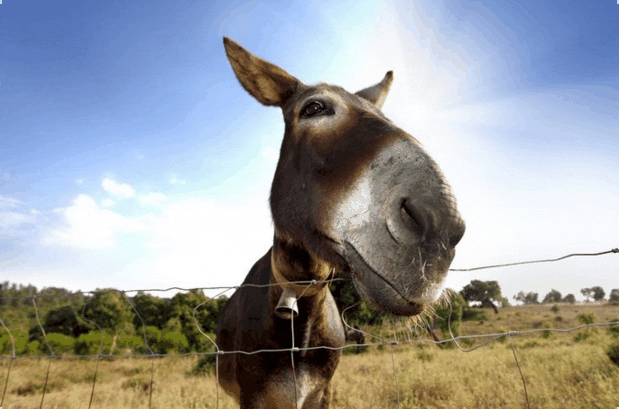
Well before any civilized nation accepted the premise that animals should be treated with compassion, halachah prohibited tzaar baalei chayim, causing unnecessary suffering to animals. According to the opinion of many of our Sages, the prohibition against causing undue pain to an animal is a Torah law (see Bava Metzia 32a; Shabbos 128b). In Moreh Nevuchim (Part 3, Chapter 17) the Rambam (Maimonides) cites the angel’s criticism of Bilaam for striking his donkey as a source for the prohibition. The verse states: “And the angel of G-d said to him, ‘Why have you beaten your donkey these three times? Behold, I have come to block your way, because it is contrary to me” (numbers 22:32). The Midrash expounds: “I have been commissioned to demand restitution from you for the injustice you have conferred upon the donkey.”

The Rambam writes as follows: “There is a rule laid down by our Sages that it is prohibited by the Torah to cause suffering to an animal. This rule is based upon the words, ‘Why have you beaten your donkey these three times?’” Some have ventured that Judaism expresses no clear opinion as to whether animals experience physical or psychological pain in the same way humans do. In the Torah, however, the donkey miraculously verbalizes his mistreatment in human language: “And G-d opened the mouth of the donkey and she said to Bilaam, ‘What have I done to you that you have smitten me these three times?” Apparently, only the understanding that an animal’s suffering is similar to a human being’s can bring one to treat animals empathetically.
And yet, it is important to point out that according to halachah, any human need, even simple financial considerations, defers the prohibition of tzaar baalei chayim (see Talmud Shabbat 110b; Rema Even Ha’ezer 5:19). This principle can also be derived from the following verses, where Bilaam responds to the angel, “I have sinned; for I knew not that you stood in the way against me” (ibid, verse 34). Clearly, if the donkey was misbehaving for no justifiable reason he deserved to be smitten, in order that he know how to serve his master with dignity and respect. The important halachic deferment of animal welfare in the face of human need has served as a bulwark against the devolvement into the devaluation of human life.
In Germany, for example, while the Nazis instituted the Final Solution, great measures were taken to ensure the protection of animals. Hitler was a passionate animal lover and an avid supporter of animal rights.
More recently, the animal rights group PETA wrote a letter to Yasser Arafat after a terrorist attack in Jerusalem on a busload of Israelis, in which a live donkey, laden with explosives, was blown up, asking him that the next time he kindly refrain from using a poor, defenseless animal.
The letter, dated February 3, 2003, reads as follows:
Your Excellency: I am writing from an organization dedicated to fighting animal abuse around the world. We have received many calls and letters from people shocked at the bombing in Jerusalem on January 26 in which a donkey, laden with explosives, was intentionally blown up. All nations behave abominably in many ways when they are fighting their enemies, and animals are always caught in the crossfire. The U.S. Army abandoned thousands of loyal service dogs in Vietnam. Al-Qaeda and the British government have both used animals in hideously cruel biological weaponry tests. We watched on television as stray cats in your own compound fled as best they could from the Israeli bulldozers. Animals claim no nation. They are in perpetual involuntary servitude to all humankind, and although they pose no threat and own no weapons, human beings always win in the undeclared war against them. For animals, there is no Geneva Convention and no peace treaty—just our mercy. If you have the opportunity, will you please add to your burdens my request that you appeal to all those who listen to you to leave the animals out of this conflict? We send you sincere wishes of peace. Very truly yours, Ingrid Newkirk President, PETA
It should be noted that at least PETA didn’t consider the possibility that Arafat’s donkey willingly undertook the mission to be a suicide bomber. So maybe there’s still hope for the group.
